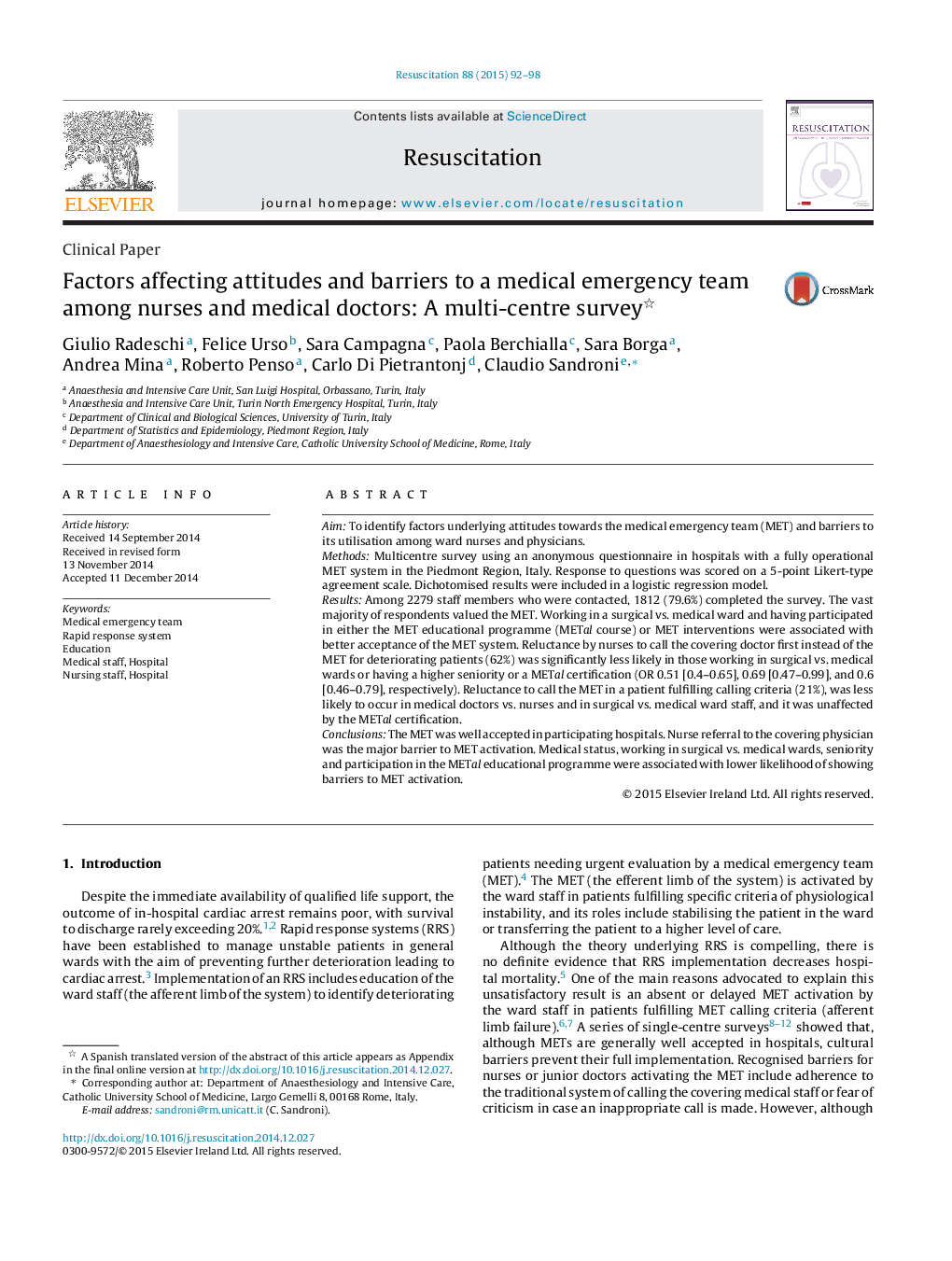| Article ID | Journal | Published Year | Pages | File Type |
|---|---|---|---|---|
| 3008003 | Resuscitation | 2015 | 7 Pages |
AimTo identify factors underlying attitudes towards the medical emergency team (MET) and barriers to its utilisation among ward nurses and physicians.MethodsMulticentre survey using an anonymous questionnaire in hospitals with a fully operational MET system in the Piedmont Region, Italy. Response to questions was scored on a 5-point Likert-type agreement scale. Dichotomised results were included in a logistic regression model.ResultsAmong 2279 staff members who were contacted, 1812 (79.6%) completed the survey. The vast majority of respondents valued the MET. Working in a surgical vs. medical ward and having participated in either the MET educational programme (METal course) or MET interventions were associated with better acceptance of the MET system. Reluctance by nurses to call the covering doctor first instead of the MET for deteriorating patients (62%) was significantly less likely in those working in surgical vs. medical wards or having a higher seniority or a METal certification (OR 0.51 [0.4–0.65], 0.69 [0.47–0.99], and 0.6 [0.46–0.79], respectively). Reluctance to call the MET in a patient fulfilling calling criteria (21%), was less likely to occur in medical doctors vs. nurses and in surgical vs. medical ward staff, and it was unaffected by the METal certification.ConclusionsThe MET was well accepted in participating hospitals. Nurse referral to the covering physician was the major barrier to MET activation. Medical status, working in surgical vs. medical wards, seniority and participation in the METal educational programme were associated with lower likelihood of showing barriers to MET activation.
